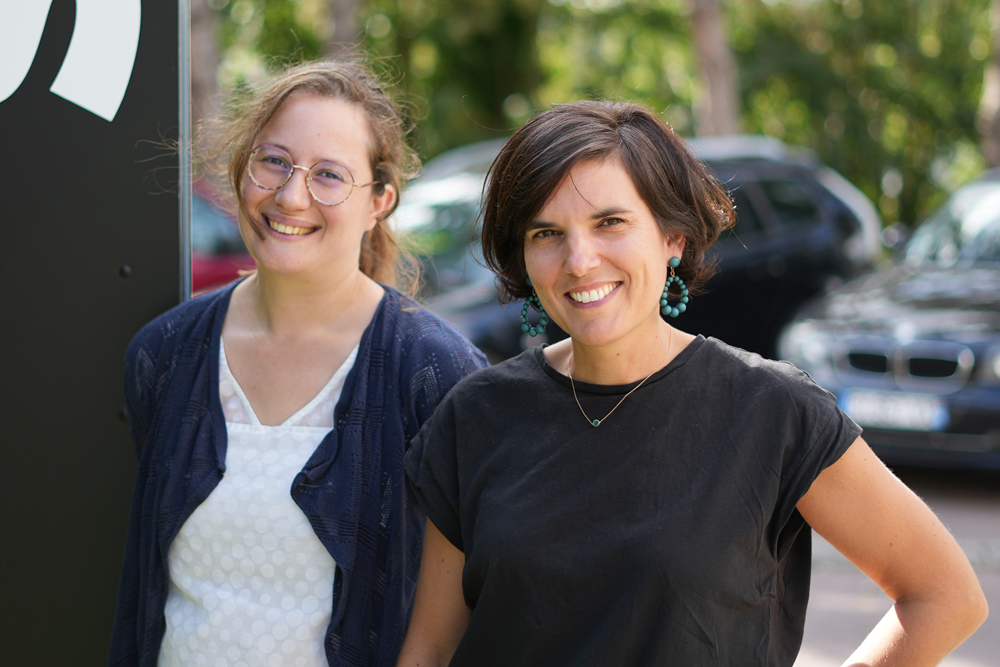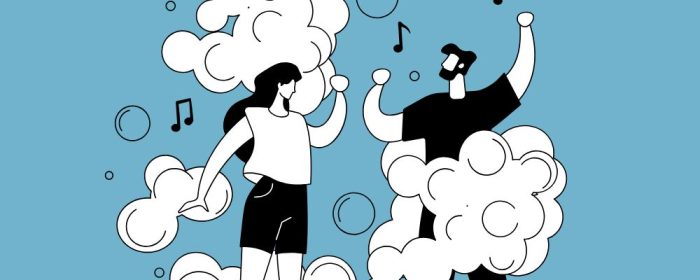The start of the academic year is often synonymous with festivities. Dr. Thibault-Landemore and Dr. Semeraro, doctors at the Student Health Service (SSE), give us some advice on how to reduce the risks you may encounter at a party.
Party risks: how to spot them

Whether it’s excessive consumption of alcohol or other substances, the good times envisaged with loved ones can sometimes turn sour. For Drs. Julie Thibault-Landemore and Laura Semeraro, it’s essential “to have time to relax, but also to know how to spot the risks for yourself and for others. Of course, we have the right to party, to have drinks that don’t correspond to the norm. However, it’s better to adopt habits and gestures that can help avoid bad memories of the evening“, they explain.
In a party context, “changes in behavior, with different gestures or postures, over-reactions or uninformed choices, should challenge us“. While these changes in state are often “spotted after the fact“, paying attention to these details can help anticipate a “bad trip“.
Tips for a good evening
To reduce the risks, Drs. Thibault-Landemore and Semeraro offer some simple but effective recommendations:
- eat before going out,
- go out accompanied,
- anticipate the end of the evening – how it ends, where to sleep and how to get home,
- I identify someone I can trust,
- I don’t underestimate the impact of fatigue on my state of mind during the evening,
- I delay the start of my drink, spread it out over the evening, and hydrate regularly,
- I’m vigilant about mixing,
- I pay attention to “home doses”, which can be difficult to measure compared to those served in bars,
- I check that I have my keys, that my phone is charged, and that I have an unexpired breathalyser,
- I adapt my outfit before going out to take into account the drop in temperature at night,
- in the area of emotional and sexual life, I make sure I have appropriate contraception, I have or know where to find protection (external and internal condoms, dental dams, etc.), and I make sure I remain lucid to express what I accept and what I don’t accept at every moment of sexual relations,
- I make sure my partner consents throughout the relationship,
- I remember that when I organize a party, I’m responsible for the smooth running and the condition of the people present.
A person in distress: adopt the right reflexes
During a festive event, no matter how big or small, a situation of distress can always arise. In the event of a problem, it’s important to know how to react. The two doctors explain that it’s important to “watch out for potential aggression” on the part of the person concerned. You mustn’t “isolate the person, but try to keep an eye on them at all times. Ask them what they’ve eaten, check they’re not cold and, if necessary, cover them up and put them in the lateral position of safety. Eventually, if the person is able, they can be given something to eat and drink”.
Whatever the situation, Drs. Landemore and Semeraro recommend keeping “a reassuring posture” and trying to “know who knows the person and who is bringing them back“. If necessary, “call 18 or 15 if it seems necessary, if only to ask for informed advice“.
The SSE at your service
The Student Health Service is always available to answer your questions, even at festive events. In the case of a forgotten pill, a request for emergency contraception, or an assessment of the risk of STIs, “an initial assessment of needs can be carried out by a nurse in a caring atmosphere, without an appointment“, the two doctors point out. An appointment for contraception reassessment or remote STI screening can also be arranged. “If there is excessive consumption of drugs or alcohol, it is also possible to have an overall assessment of one’s consumption. The ESS is at your disposal if you need it. “
Whatever your situation, if you’ve taken a risk, it’s important not to be left alone with your concerns.






